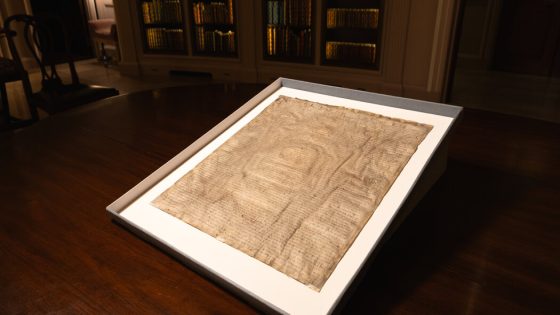A recently uncovered manuscript in Harvard Law School’s library is set to change our understanding of the Magna Carta. Bought for just $27.50 after World War II, this document was thought to be a mere copy until British academics discovered it is an original 1300 version. This revelation comes at a time when the significance of such historical documents is more relevant than ever, especially as the nation grapples with issues of liberty and law.
- Manuscript bought for $27.50 post-WWII
- Discovered original 1300 version of Magna Carta
- Only seven original documents still exist
- Value estimated significantly higher than purchase price
- Document's relevance amid political pressures on Harvard
- Academics involved: David Carpenter and Nicholas Vincent
The manuscript, which has attracted little attention since its arrival in 1946, is one of only seven existing documents from that era. David Carpenter, a professor at King’s College London, made the startling find in December 2023, expressing his disbelief at discovering a piece of such monumental history. Given that a similar version sold for $21.3 million in 2007, the original manuscript’s value is expected to skyrocket.
This discovery raises important questions about the preservation of historical documents and their relevance today. How do such artifacts influence our understanding of modern governance? And what does this mean for institutions like Harvard, which face scrutiny over their historical legacies?
- Original Magna Carta manuscripts are incredibly rare.
- The find underscores the importance of historical context in contemporary legal discussions.
- Such documents can influence public perception of law and governance.
As we reflect on this find, it’s vital to consider how historical documents can inform our future legal frameworks and societal values. Will this discovery inspire new conversations about liberty and justice in the U.S.?
































